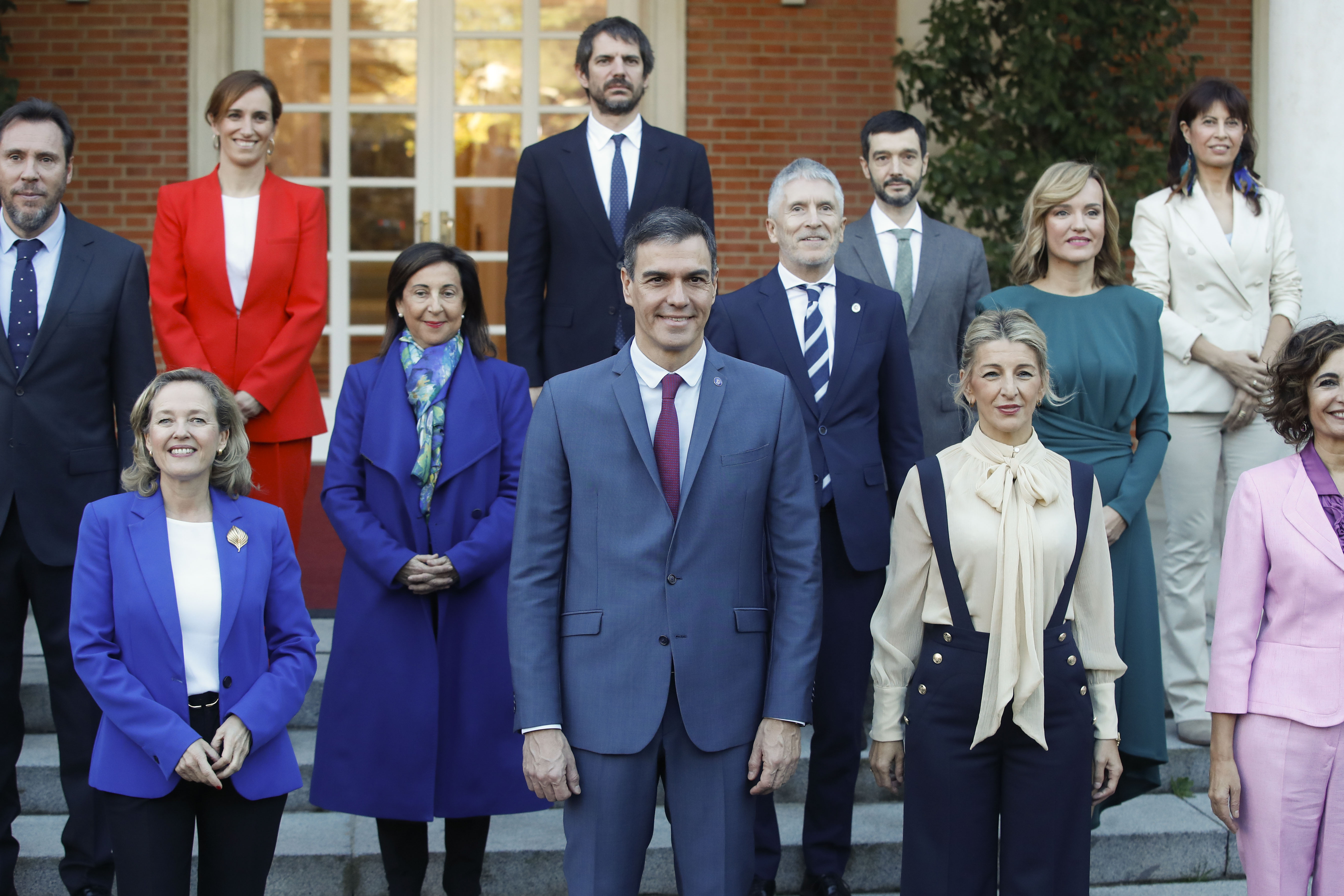Spain’s Catalan compromise: a national betrayal?
In order to seal his return to power for a second term, Spain's Socialist Party leader, Pedro Sánchez has cut a deal with the Catalan separatists

A free daily email with the biggest news stories of the day – and the best features from TheWeek.com
You are now subscribed
Your newsletter sign-up was successful
Something is happening in Spain, said Jorge Fernández Díaz in La Razón (Madrid), "that surpasses everything imaginable in a civilised society and a country organised as a democracy in a rule of law".
In order to seal his return to power for a second term, Spain's Socialist Party leader, Pedro Sánchez, has sold the Spanish nation and the rule of law down the river. He has cut a deal with the Catalan separatists who masterminded the illegal independence referendum of 2017, promising to grant them amnesty in exchange for the seven parliamentary votes he needs to secure a majority. "There are no words to define this infamy."
'Unconditional surrender to the separatists'
Say what you like about Sánchez, there's no denying he's the ultimate political survivor, a man who keeps defying the odds, said Carlos E. Cué in El País (Madrid). When he tilted for the leadership of Spain's Socialist Party in 2013, not even close friends thought he had a realistic hope. Yet within a year he was leading the party and, four years on, having seen off then PM Mariano Rajoy, leader of the centre-right People's Party (PP), in a no-confidence vote, he was PM himself.
The Week
Escape your echo chamber. Get the facts behind the news, plus analysis from multiple perspectives.

Sign up for The Week's Free Newsletters
From our morning news briefing to a weekly Good News Newsletter, get the best of The Week delivered directly to your inbox.
From our morning news briefing to a weekly Good News Newsletter, get the best of The Week delivered directly to your inbox.
This year he gambled again, calling a snap election that pollsters gave him no chance of winning. As predicted, the PP went on to win the largest vote share, but even with support from the far-right Vox party, it fell short of a working majority. Thus Sánchez, whose party came in second, had the opportunity to try to form a government of his own; and last week, after months of secretive negotiation, he sealed his return to power for a second term. A man widely seen as a political has-been has thus confirmed his status as "one of the most powerful men" in his party's history.
But at what cost to his reputation and to Spain, asked ABC (Madrid). Sánchez and his Socialist colleagues had repeatedly ruled out the possibility of granting amnesty to the Catalan separatists who masterminded the illegal referendum. Now, all of a sudden, under their new amnesty deal some 300 of those separatists will have their charges annulled, and the separatist leader, Carles Puigdemont, currently in exile in Belgium, will have his arrest warrant lifted. This "unconditional surrender" to the separatists, is an affront to the rule of law, said Manuel Valls and Benoît Pellistrandi in Le Monde (Paris). By superseding rulings of Spain's supreme court, Sánchez has effectively declared war on the judiciary.
'The riskiest bet yet'
It has certainly incensed much of Spain, said Noelia Adánez in Público (Madrid). Hundreds of thousands of people have joined the nationwide protests organised by the opposition People's Party and Vox. Many are convinced that the deal – if it is not successfully challenged in court – heralds nothing less than the "destruction of the Spanish nation".
Hardly, said The Economist. The deal contains no mention of a Catalan state. Indeed, it is quite explicit that Puigdemont and his Junts party can only seek another referendum through a constitutional instrument that the PM alone can initiate, one that would allow "all citizens" (not just Catalans) to vote. That, in effect, dooms any such vote to failure. Even so, the prevailing view is that the amnesty is a sell-out to Junts and, furthermore, one that Spain's constitutional court won't block, seeing as it is now populated with Sánchez allies. Hence, as their last hope, the right-wing parties are now calling on Brussels to intervene.
A free daily email with the biggest news stories of the day – and the best features from TheWeek.com
But this presents EU leaders with a very tricky dilemma, said El Español (Madrid). If they heed those calls, they risk alienating an influential member state and frustrating the formation of its government. Ignore them, however, and they open themselves to accusations of double standards from the likes of Poland and Hungary, who have had payments from the EU budget withheld for overriding the judiciary in similar fashion. Sánchez's immediate priority is to use his fragile majority to pass a budget, said El País. He wants to reduce the working week to 37.5 hours, and to extend a reduction in VAT on food. But he'll find that hard, as the fury over his amnesty deal won't abate any time soon. Sánchez has often had to roll the dice to achieve success. Make no mistake: this is his "riskiest bet yet".
-
 Health insurance: Premiums soar as ACA subsidies end
Health insurance: Premiums soar as ACA subsidies endFeature 1.4 million people have dropped coverage
-
 Anthropic: AI triggers the ‘SaaSpocalypse’
Anthropic: AI triggers the ‘SaaSpocalypse’Feature A grim reaper for software services?
-
 NIH director Bhattacharya tapped as acting CDC head
NIH director Bhattacharya tapped as acting CDC headSpeed Read Jay Bhattacharya, a critic of the CDC’s Covid-19 response, will now lead the Centers for Disease Control and Prevention
-
 Corruption: The spy sheikh and the president
Corruption: The spy sheikh and the presidentFeature Trump is at the center of another scandal
-
 Putin’s shadow war
Putin’s shadow warFeature The Kremlin is waging a campaign of sabotage and subversion against Ukraine’s allies in the West
-
 The fall of the generals: China’s military purge
The fall of the generals: China’s military purgeIn the Spotlight Xi Jinping’s extraordinary removal of senior general proves that no-one is safe from anti-corruption drive that has investigated millions
-
 Epstein files topple law CEO, roil UK government
Epstein files topple law CEO, roil UK governmentSpeed Read Peter Mandelson, Britain’s former ambassador to the US, is caught up in the scandal
-
 Mexico’s vape ban has led to a cartel-controlled black market
Mexico’s vape ban has led to a cartel-controlled black marketUnder the Radar Cartels have expanded their power over the sale of illicit tobacco
-
 Iran and US prepare to meet after skirmishes
Iran and US prepare to meet after skirmishesSpeed Read The incident comes amid heightened tensions in the Middle East
-
 Syria’s Kurds: abandoned by their US ally
Syria’s Kurds: abandoned by their US allyTalking Point Ahmed al-Sharaa’s lightning offensive against Syrian Kurdistan belies his promise to respect the country’s ethnic minorities
-
 Israel retrieves final hostage’s body from Gaza
Israel retrieves final hostage’s body from GazaSpeed Read The 24-year-old police officer was killed during the initial Hamas attack